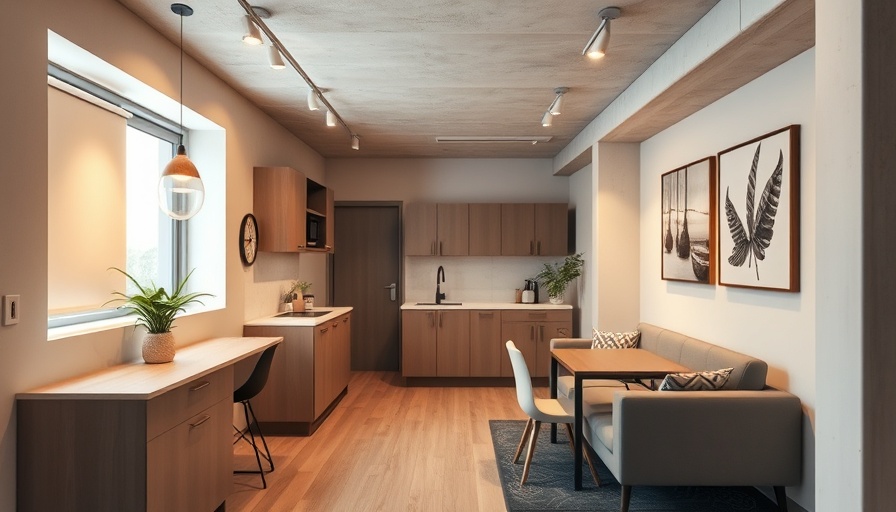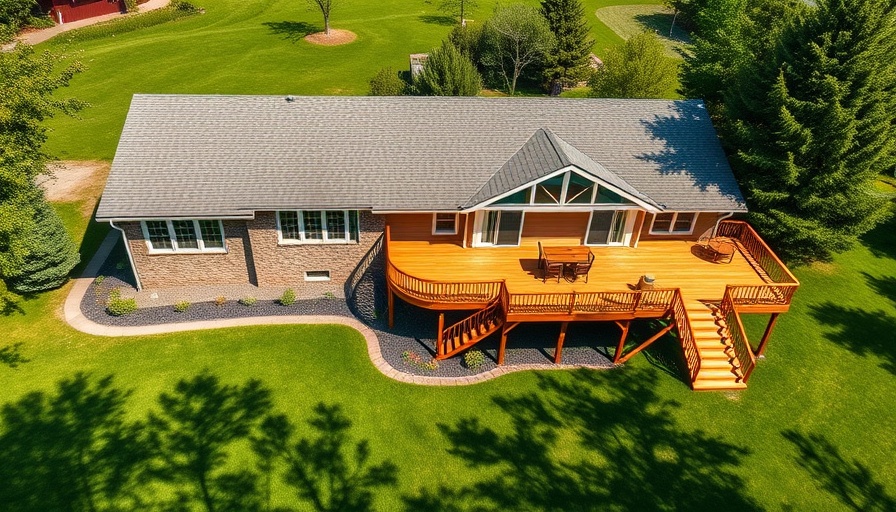
The Rise of Conversion: An Answer to Brooklyn's Housing Demand
As Brooklyn's housing market swells in both cost and demand, the trend of converting basements into livable apartments has gained momentum. Many homeowners are considering this project as a viable pathway to enriching their property and providing affordable housing solutions. However, the motivation for such conversions stretches beyond profit—it's a necessity rooted in the pressing need for more sustainable living spaces.
Yet, with the appeal of basement apartments comes a bundle of responsibilities—chiefly, ensuring compliance with local laws and safety standards. This guide aims to illuminate the precautions homeowners should take to navigate this conversion process without legal pitfalls.
Navigating the Legal Waters of Zoning
Understanding zoning laws is paramount before undertaking a basement conversion. Homeowners must first determine if their property is zoned for residential use. The New York City Department of City Planning serves as the primary resource for verifying zoning specifics. The varying regulations across neighborhoods highlight the complexity that homeowners face; thus, consulting local zoning maps could save considerable future headaches.
Particularly, certain zones might limit the number of units allowed per property. If a homeowner's building is already at capacity, adding a basement apartment may not be permissible under current zoning laws—which serves as a sobering reminder that thorough research is critical.
Essential Permits: The Heart of Compliance
Once zoning is clarified, acquiring the correct permits becomes the next hurdle in the conversion process. In New York City, transforming a basement into a dwelling necessitates a building permit from the NYC Department of Buildings (DOB). This stage can be intricate; many homeowners enlist professionals experienced in navigating the red tape of city regulations.
The DOB’s evaluations will cover structural integrity, egress solutions, and fire safety measures. A professional review ensures that building plans include essential features like egress windows, which provide tenants with exit options in emergencies and enhance natural lighting—a significant plus for small spaces.
Safety Regulations: Putting People First
Safety doesn’t just begin and end with permits; it stays active through compliance with building codes. Homeowners must meet a range of regulations covering critical areas like plumbing, electrical systems, and ventilation. These codes cater to the safety and health of occupants, ensuring the basement can efficiently support living conditions.
Particularly, ceiling heights must be adequate, windows must permit natural light and airflow, and smoke alarms must be functional. The condemnation of non-compliant structures during city inspections highlights the necessity of adherence to these codes to avoid potentially tragic consequences.
The Real Cost of Conversion: Budgeting Wisely
While the prospect of additional rental income is enticing, analyzing the long-term costs associated with a basement conversion cannot be overlooked. Typically, conversions can range between $50,000 to $200,000, adjusted for the specific city regulations and construction intricacies involved.
Homeowners must factor in not only material and labor costs but also fees associated with permit applications and professional consultations, emphasizing the importance of a financial blueprint to guide decision-making.
Proactive Planning: Steps to Take Before You Begin
To ensure a smooth transition into the world of basement apartments, potential landlords need to proactively equip themselves with knowledge. Researching reputable legal services specializing in basement legalizations can ease the burden of navigation through regulatory mazes. Familiarizing oneself with safety and health codes is equally vital in creating a habitable environment and protecting one’s investment.
Moreover, reviewing city resources regarding licenses and compliance can shine a light on navigating future potential challenges. A swift move against illegal conversions can often spark legal turmoil or costly renovation requirements that could derail the initial goals of the homeowner.
Community Vigilance: Keeping Neighborhoods Safe
As basement conversions proliferate, maintaining vigilance and accountability within local communities becomes essential. Homeowners should consider the broader implications of their conversions—ensuring safety not only for beginners but also for surrounding neighbors. In light of past flood incidents, the call for more regulated basement apartments is more pressing than ever.
Adhering to the regulations fosters community safety and an integrated living environment. Neighborhood reviews and clear viewings of any additional rentals can serve as preventive measures against future hazards and accidental unlawful practices.
The Conclusion: Your Next Steps
In conclusion, converting a basement into an apartment can open pathways to additional income and help address homelessness in a burgeoning urban area like Brooklyn. However, understanding the legal and zoning considerations is fundamental to such endeavors. Homeowners are encouraged to engage local consultants to navigate the nuances of zoning laws and building codes.
As you embark on your basement transformation journey, utilize this comprehensive guide as your go-to reference. Stay informed, remain compliant, and you’ll reap the benefits of transforming your space into a safe and legal rental unit. Connect with local professionals and initiate discussions on your basement's potential, and ensure your compliance journey starts on solid ground.
 Add Row
Add Row  Add
Add 




 Add Row
Add Row  Add
Add 

Write A Comment